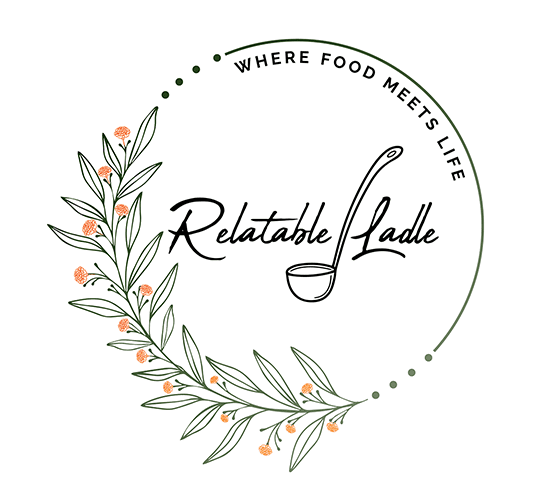You may be more familiar with enmeshment in cultures than you may think. When I grew up, my mother thought it was appropriate that she had a say in my daily decision-making. My mother wanted me to marry someone with status and a good job.
My career choices were limited to a few high-paying, esteemed roles, such as doctor or lawyer. This would no doubt reflect her parenting and give her bragging rights. It didn’t matter if I was happy or not.
With this information, you can imagine which culture heavily influenced my mother. That is the power of culture and enmeshment.
Some might see this as her only looking out for my best interest; others can feel the weight of this pressure and authoritarian direction.
Understanding Enmeshment in Collectivist Cultures
In collectivist cultures, a complex pattern of interdependence and cultural sensitivity is interwoven into the family dynamics.
Enmeshment, where the line between individual and family needs becomes indistinguishable, can be present through the persistent enforcement of family bonds.
The demands of personal sacrifice, honor, and loyalty to fulfill family expectations complicate setting boundaries for the individual with the family.
The intertwined roles of career choices, marriage decisions, and respect for authority further exemplify this enmeshment. Navigating personal aspirations and familial obligations is a balance.

The Cultural Fabric of Family Interdependence
In collectivist cultures, decision-making is heavily influenced by tight-knit families, which individuals must navigate within.
Embracing the values of sacrifice, honor, and loyalty to fulfill duties as a family member can be a double-edged sword: it can foster a sense of belonging and security and potentially suppress individual needs.
Please don’t get us wrong here. Tight-knit families are okay when members can mutually respect each other (even if they disagree with the individual regarding decisions).
Boundary Setting vs. Cultural Values
Mental health professionals advocate for boundary-setting to promote well-being. Within culturally enmeshed families, making choices independent of the family or disregarding expectations can be perceived as defiant acts rather than an individual’s rights.
The tension between honoring your boundaries and respecting familial input highlights the importance of a culturally inclusive approach to therapy.
Mental health professionals tailor strategies that respect the client’s cultural background to avoid the individual’s alienation from their cultural and familial ties.
Boundaries also generate safety in relationships. When your privacy is respected, you are more likely to feel heard, validated and appreciated.
Sahar Andrade, MB.BCh
Workable Boundaries: A Comprehensive Strategy
To balance individual needs with collective expectations, establishing workable boundaries can offer an innovative solution.
Let’s look at choosing a career path that contradicts family traditions. A workable boundary might involve pursuing personal aspirations alongside roles cherished by one’s family.
For some, there may be more sustainable options. I know many people who have also pursued their passion and have done so well for themselves (and beyond financially speaking) that family expectations evolved into support for these individuals.
Similarly, when it comes to marriage, individuals might negotiate input from elders with personal preferences, honoring both autonomy and familial respect. This does not mean only choosing someone that the family approves of. It means navigating cultural values with sensitivity and also independent assertiveness.
This nuanced strategy develops guilt-free expression of individual needs within enmeshed family dynamics to create a shift from stringent boundary settings to fluid, adaptive ones.
Workable boundaries nurture personal development and can also reinforce family bonds.
How to Pursue Individuality
Aside from setting boundaries with family, the individual can still pursue their independence in other ways. The suggestions below will help the individual stay grounded in their own identity within culturally enmeshed families.
- Self-Exploration: Participate in activities that encourage the exploration of interests, values, and beliefs.
- Diverse Experiences: Seek experiences outside of the cultural sphere. Socialize with people from different backgrounds, study abroad, or engage in cultural exchange programs.
- Education and Learning: Diverge from family expectations and pursue education or opportunities to learn areas that are of interest to you to develop your own perspectives and career paths.
- Establish a Support Network Beyond Family: Your support network can include friends, mentors, or peers who understand and respect your journey and can provide encouragement and validation along the way.
- Mindfulness and Self-Reflection: Regular practice of these tools will help individuals make decisions that align with personal values by staying connected to the true self.
- Artistic Expression: This is a powerful method to explore and express your unique identity.
- Advocacy and Activism: Assert independence and contribute to something larger than yourself by supporting a cause that resonates with you.
- Embrace Change: Be open to change and growth with the understanding that identity is fluid and can evolve.
Embracing Cultural Unity and Individuality
Being part of a multifaceted collectivist culture, the individual’s journey often entails enmeshment and the pursuit of personal boundaries.
Individuals stand at the crossroads of dominant cultural expectations and family-revered traditions while grappling with guilt for wanting independence.
These people strive to chart a course that aligns with their dual identity, often influencing their decision-making.
Such a journey underscores the necessity for mental health practices to embrace the diversity of human experience. Here, workable boundaries serve as a bridge between collective unity and personal well-being.
By celebrating the richness that collectivist cultures bring to society while safeguarding the sacred autonomy every individual has a right to, we may plan a more inclusive and understanding global village.
Do you experience Enmeshment in Cultures?
Please drop us a comment below! Did you know we explore other enmeshed dynamics?
For more information on mother enmeshment, we delve into this dynamic here. If you want to learn more about how enmeshed mothers can impact their sons or fathers with daughters, you can find that article here and here. Finally, if you’re wondering whether no contact makes sense with this example of parent-child relationships and family enmeshment, check out our article here.
Disclaimer: All content and information on this website including our recipes and blog articles is for informational and educational purposes only and does not constitute medical, psychological, or health advice (for that please always seek the help of a professional in these areas). We do not warrant that the information presented herein is free of any errors or omissions although we do our best to provide information backed by research.

